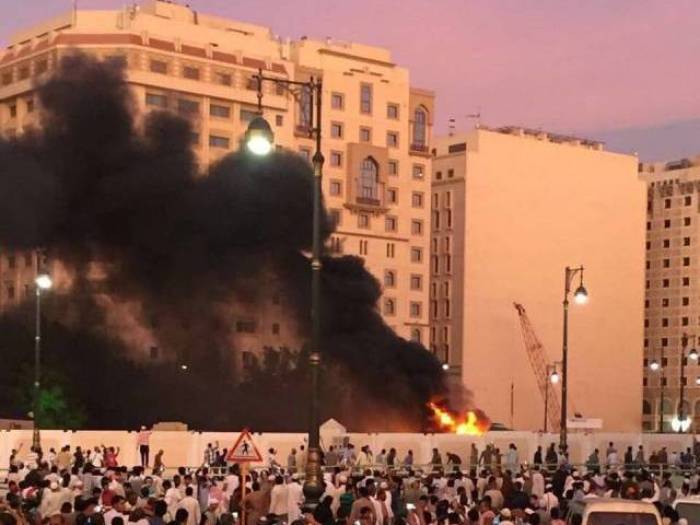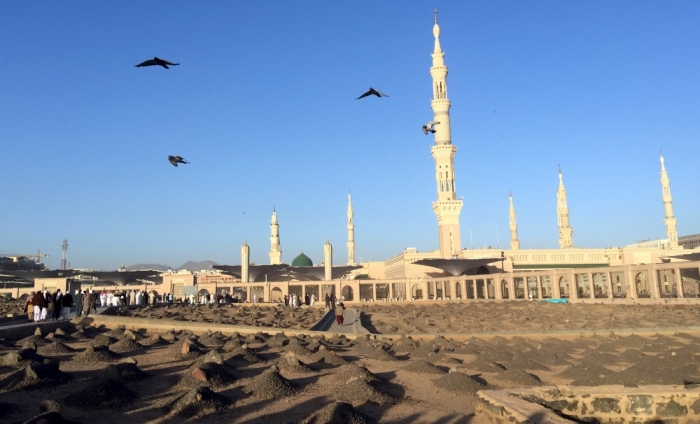Medina Bombing: Muslim Clerics Outraged After ISIS Strikes Islam's 2nd Holiest Site

Top Islamic clerics in Saudi Arabia have spoken out in outrage against the Islamic State terror group following three suicide bombings in the country, including one near the Prophet's Mosque in Medina, which is Islam's second holiest site.
The Senior Council of Ulema said the bombers "violated everything that is sacred" in their attacks against the holy sites. BBC News noted that four security guards were killed in the bombing in Medina, though only the terrorists died in two other separate attacks in Jeddah and Qatif on Monday.
IS has carried out a number of violent attacks throughout the Islamic holy month of Ramadan in predominantly Muslim countries, such as Turkey, Bangladesh and Iraq.
An interior ministry spokesman described the attack at Medina, where thousands of worshipers had gathered for prayers: "Security men suspected a person while he was heading to the mosque — where the Prophet Muhammad is buried — through a vacant lot of land used as a parking space for visitors' cars."

The Saudi spokesman added: "When they intercepted him, he blew himself up with an explosive belt, which resulted in his death, martyrdom of four security men, and injury of five other security men."
Muslim leaders from around the world condemned IS' actions, with Iran's Foreign Minister Javed Zarif writing on social media: "There are no more red lines left for terrorists to cross. Sunnis, Shiites will both remain victims unless we stand united as one."
Mohammed bin Zayed al-Nahyan, the Crown Prince of Abu Dhabi, added: "It's time we work together to save our religion from these deadly criminal gangs."
The Senior Council of Ulema accused the jihadist terror group of lacking any respect, and said that it has "no religion or conscience."
Abdullah al-Sheikh, the head of the Shura Council, the Kingdom's main advisory body, said the attack was "unprecedented."
"This crime, which causes goosebumps, could not have been perpetrated by someone who had an atom of belief in his heart," al-Sheikh added.
An analysis by BBC News noted that IS has claimed responsibility or has been blamed for the deaths of over 300 people throughout the month of Ramadan, from the terror attacks in Orlando to Istanbul to Dhaka.
According to IS' extremist ideology, Muslims who do not support its actions are in line with Western powers that the terror group sees as enemies.
IS spokesman Abu Mohammed al-Adnani told supporters ahead of Ramadan: "Get prepared, be ready to make it a month of calamity everywhere for the non-believers ... especially for the fighters and supporters of the caliphate in Europe and America."
The report traced some of the extremist interpretations of Ramadan to Abdullah Azzam, a militant Arab leader in Afghanistan during the 1980s, who argued that "neglecting jihad is like abandoning fasting and praying."
Azzam also wrote that "jihad is the most excellent form of worship, and by its means the Muslim can reach the highest of ranks [of paradise]."





























